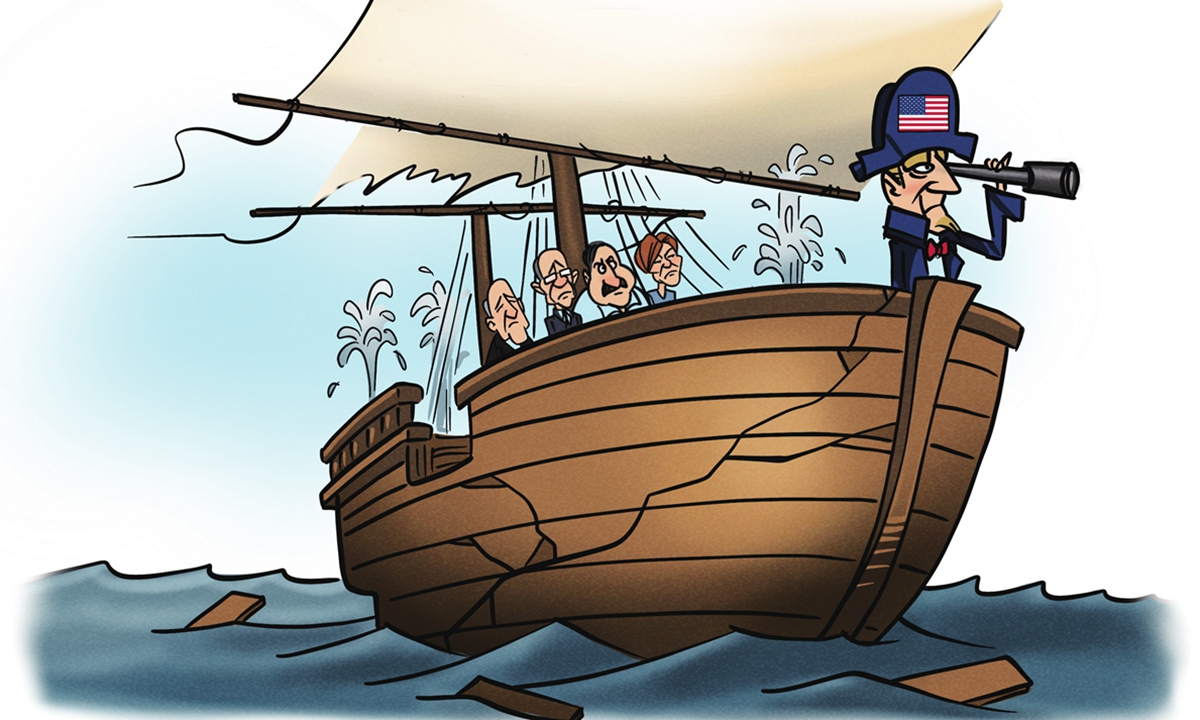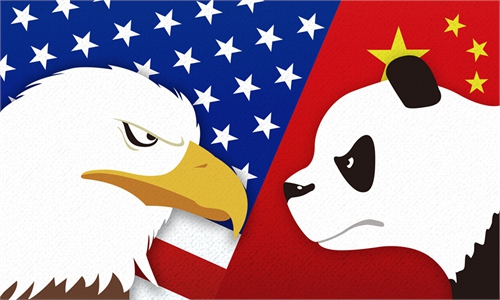
Illustration: Liu Rui/GT
Over the last 40 years, the Chinese government has lifted over 800 million people out of extreme poverty - defined by the World Bank as people living with incomes below $1.90 per day. This enormous achievement should not simply be viewed from a Chinese perspective, as it also has an impact that goes beyond China's borders, accounting for around 75 percent of extreme poverty reduction in the world. China's fight against poverty has contributed to the well-being of the largest number of people in human history.
Over the last few decades, China has been the main engine of economic growth in the world. China's economic growth in the period is one important reason why many countries in East Asia have been able to experience robust economic growth and cushion themselves against economic downturns and financial crises.
Just like ancient Chinese inventions such as papermaking, printing and the compass that made an enormous contribution to the world, the modern age Chinese inventions and breakthroughs in sectors such as space technology, AI, biotechnology, renewables, and robotics are adding a great deal of value to human development, not only in China, but also to the world at large.
Especially, developing nations across the world, from Asia to Latin America, are China's natural partners. China is the globe's largest consumer of raw materials, and many developing nations are major minerals exporters, making their relations mutually beneficial for capturing complementarities and synergies. After all, over the past several decades, it's the developing nations that have been keeping the global economy running.
China is viewed as a threat by some in the West, not only because of its rising economic, technological, geopolitical and military power in Asia, but also because it's helping other powers rise, disrupting the old hegemonic world order and its sub-global orders.
The fact that China has experienced devastating defeats and humiliation but managed to make a marvelous comeback within the span of less than 200 years should be a reason for celebration and a source of inspiration for the world. But, sadly, some narrow-minded ideologues in the West find this fact a source of threat.
One reason some Western countries try to portray China as a threat is their desire to contain China's rise. It has little to do with their security, but it has a lot to do with their self-perceived global dominance, which has been fading away.
China is not a threat to the US; the US is secure, surrounded by oceans and friendly neighbors. China, along with other emerging nations such as India and South Africa, is demanding a just and fair power distribution in the current system of global governance. The US' fears stem from the prediction that it won't be the sole world hegemon anymore and it won't be able to dictate to the world any longer. It's this loss of world hegemony that China's rise has accelerated that's making some in the West view China as a threat.
Also, by developing technologically and economically, China proves to the world, especially to developing nations, that they don't need Western "liberal democracy" to develop; they can follow their own path of development.
When some ideologues in the West say "China is the most dangerous threat to the democratic world in the 21st century," what they actually mean is "China is a major threat to the West's hegemonic position in the world." The fact of the matter is that many democracies don't consider China a threat.
Unfortunately, nowadays, some in the West, especially in the US, openly admit "China's development is a threat to us" as if China and other nations are not allowed to develop. This is an outdated mind-set from the long-gone era of colonialism and imperialism.
However, those in the West cannot stop this transition in the world order - the best they can hope for is a slight delay in the short term, but it will incur a huge cost for themselves. The world system transformation is not driven by the growing power of China only, but also by that of other rising and re-emerging nations such as India, Indonesia, Brazil, Saudi Arabia, Egypt, South Africa, and Nigeria.
The US' number one threat is not China; it's the arrogant and reckless approach of some US establishment members and their allied peers toward the rest of the world; it's the visible internal decay of the US; it's the widespread sense of insecurity; it's the lack of self-confidence; it's the lack of trust in the government and its institutions; it's the prevalent belief that there's systemic injustice and inequality; it's the system's inability to deliver to the people.
Because of the efforts by Arab states, rising Chinese soft power, and the declining credibility of those who try to perpetuate the "China threat" theory in the Arab world, the "China threat" narrative has not gotten traction in the Arab world.
This article was compiled by Global Times reporter Yu Jincui based on an interview with Ebrahim Hashem, former adviser to the chairman of the Abu Dhabi Executive Office, an authority responsible for Abu Dhabi's long-term strategies, and Asia Global fellow at the Asia Global Institute at the University of Hong Kong. opinion@globaltimes.com.cn

